Instant coffee is all about convenience without skimping on flavor. Whether you're in a rush or just craving a quick caffeine fix, these options make it super easy to enjoy a delicious cup. Just add hot water, stir, and you’re ready to sip and savor!
Instant Coffee
Enjoy a quick and flavorful cup anytime you need a caffeine boost
Product List
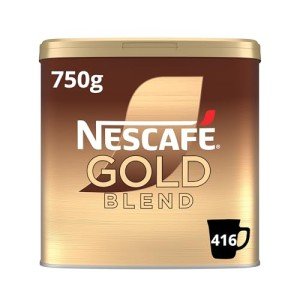
Nescafe Gold Instant Coffee 750g
Nescafé
Product Review Score
4.63 out of 5 stars
172 reviews£36.41 £26.49
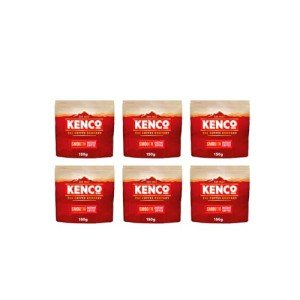
Kenco Smooth Instant Coffee Refill
Kenco
Product Review Score
4.67 out of 5 stars
150 reviews£41.69
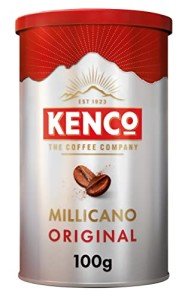
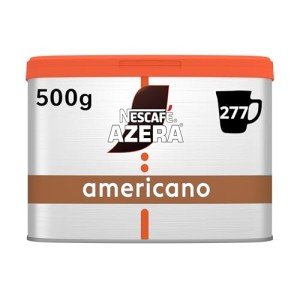
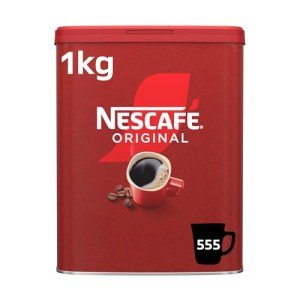
Nescafe Original 1kg Coffee
Nescafé
Product Review Score
4.31 out of 5 stars
101 reviews£36.50 £29.52
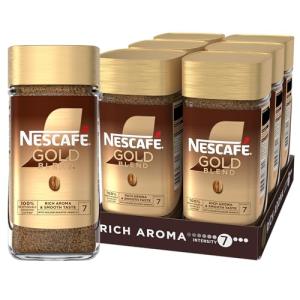
Nescafé Gold Instant Coffee
Nescafé
Product Review Score
4.35 out of 5 stars
51 reviews£14.89 £14.13
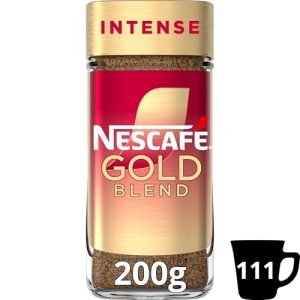
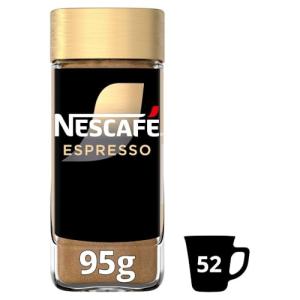
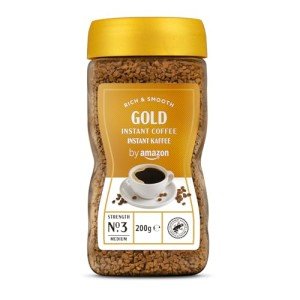
Gold Medium Roast Instant Coffee
By Amazon
Product Review Score
4.73 out of 5 stars
82 reviews£2.92
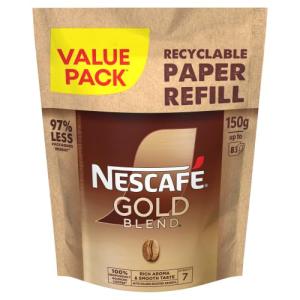
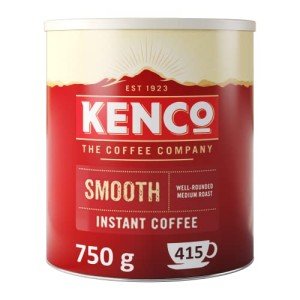

Continental Rich Roast Coffee
Douwe Egberts
Product Review Score
4.44 out of 5 stars
10 reviews£32.51 £29.99
Instant coffee, often viewed as a quick and convenient solution for caffeine cravings, has gained a firm foothold in the global beverage market. Initially dismissed by coffee aficionados, advancements in production methods and a growing variety of options have transformed instant coffee into a practical choice for many consumers. This blog post aims to inform readers about the history, production, advantages, and recent innovations in instant coffee, while also addressing frequently asked questions to provide a comprehensive overview of this fascinating beverage.
A Brief History of Instant Coffee
The history of instant coffee can be traced back to the 18th century, although it became commercially available much later. The following timeline provides a concise overview of its evolution:
| Year | Event |
|---|---|
| 1771 | The first mention of instant coffee. A mixture of brewed coffee and sugar was created. |
| 1851 | William Horn, a British inventor, patented a process for making instant coffee. |
| 1901 | Japanese chemist Satori Kato invented the first successful commercial instant coffee. |
| 1938 | Nestlé introduced Nescafé, which quickly gained popularity during World War II. |
| 1965 | The first freeze-dried instant coffee introduced, enhancing flavor and aroma. |
| 2000s | The rise of specialty instant coffees and innovative production techniques. |
How Instant Coffee is Made
The production of instant coffee involves a few key steps:
-
Selection of Beans: High-quality coffee beans are chosen based on flavor profiles and strength.
-
Roasting: The selected beans are roasted to develop their flavor.
-
Brewing: The roasted beans are ground and brewed to extract flavors and aroma in a diluted coffee form.
-
Concentration: The brewed coffee is concentrated using heat or pressure to remove excess water.
-
Dehydration: Two primary methods are used:
- Spray Drying: The concentrated liquid coffee is sprayed into hot air, turning it into a fine powder.
- Freeze Drying: The liquid is frozen and then placed in a vacuum, allowing ice to sublimate into vapor, resulting in dehydrated granules.
Advantages of Instant Coffee
Instant coffee offers several benefits that have contributed to its enduring popularity:
-
Convenience: Instant coffee can be prepared in minutes, requiring only hot water.
-
Long Shelf Life: Shelf-stable and resistant to spoilage, it can last for months or even years.
-
Portability: Ideal for travel, camping, or on-the-go lifestyles.
-
Cost-Effectiveness: Generally cheaper per serving compared to brewed coffee.
-
Variety: A wide range of flavors and specialty blends are now available.
-
Less Waste: Reduced coffee ground waste compared to traditional brewing methods.
Comparison of Instant Coffee Varieties
Here’s a table comparing the common types of instant coffee available on the market:
| Type of Instant Coffee | Characteristics | Flavor Profile | Best Used For |
|---|---|---|---|
| Traditional Freeze-Dried | Granules made from freeze-dried coffee | Rich, slightly acidic | Everyday coffee |
| Spray-Dried | Powder-like texture | Mild, often more bitter | Instant coffee mixes and blends |
| Microground | Finely ground coffee with some body | Full-bodied, nuanced flavor | Gourmet coffee experiences |
| Instant Coffee Cubes | Coffee cubes dissolved in water | Convenient, accessible | Travel and on-the-go use |
Recent Innovations in Instant Coffee
With the growing interest in quality coffee, the instant coffee industry has witnessed several recent innovations:
-
Specialty Instant Coffee: Brands such as Sudden Coffee and Waka Coffee are focusing on high-quality, specialty instant coffees with unique flavor profiles.
-
Single-Serve Options: Innovations in single-serve packaging have allowed for easy and mess-free preparation, appealing to a younger demographic.
-
Sustainability Practices: Many companies are now sourcing beans sustainably, which appeals to environmentally-conscious consumers.
-
Flavored Instant Coffee: A surge in flavored options, including seasonal variations, caters to diverse consumer preferences.
-
Cold Brew Instant Coffee: This product allows consumers to enjoy a refreshing coffee experience without brewing traditional cold coffee.
Is Instant Coffee Healthy?
When consumed in moderation, instant coffee can be part of a healthy diet. It contains antioxidants, which may offer health benefits such as improved metabolism and brain function. However, individuals should be mindful of their caffeine intake, as excess consumption can lead to adverse effects such as insomnia, irritability, and increased heart rate.
FAQ about Instant Coffee
Q: Is instant coffee made from real coffee?
A: Yes, instant coffee is made from brewed coffee that has been dehydrated to remove the water content.
Q: Does instant coffee taste different from brewed coffee?
A: The taste can vary significantly between instant and brewed coffee. While some might find instant coffee lacks flavor depth, high-quality instant variations can closely resemble brewed coffee.
Q: How is instant coffee best prepared?
A: Instant coffee is best prepared by mixing it with hot water or milk, based on personal preference. Adding sugar or flavored syrups can enhance the flavor.
Q: Can instant coffee be used in recipes?
A: Absolutely! Instant coffee can be used in baking, desserts, and even savory dishes to enhance flavor.
Q: Does instant coffee contain caffeine?
A: Yes, instant coffee does contain caffeine, although the amount can vary by brand and type.
Instant coffee has come a long way since its inception, evolving to meet the demands of modern consumers. With its myriad benefits, convenience, and recent innovations, instant coffee remains a popular choice—whether enjoyed at home, at work, or on the go. As the industry continues to grow, it’s noteworthy that instant coffee is transitioning from a mere alternative to a respectable player in the coffee industry, catering to a wider audience than ever before. Thus, it’s time to give instant coffee a second chance and explore the vast universe of flavors and options it provides.